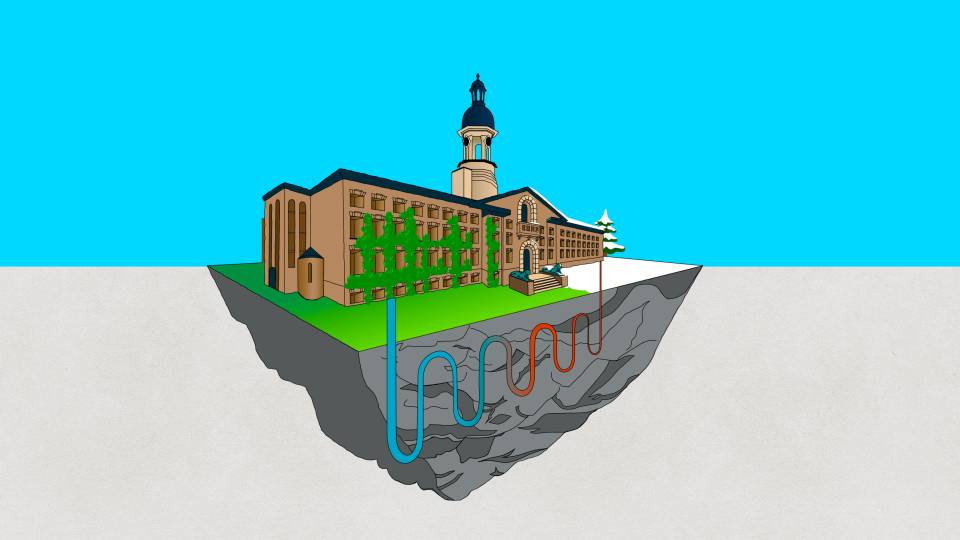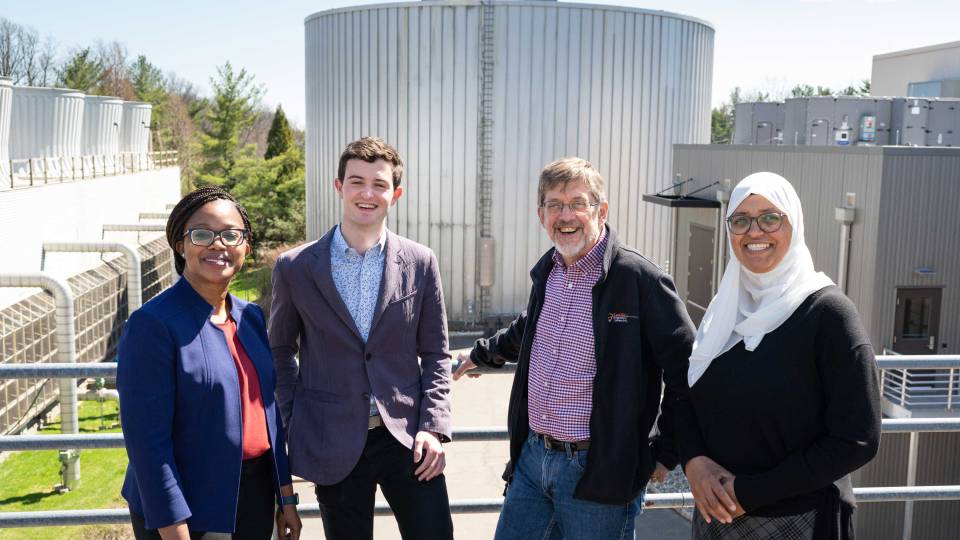Princeton University's district energy system provides a number of benefits to campus sustainability. In this video produced by the Student Environmental Communication Network, Edward "Ted" Borer, the University's energy plant manager, gives a tour through Princeton's cogeneration plant and provides a detailed look into the intricacies of cogeneration and Princeton's heat and electricity production.

Play the "Princeton's Cogeneration Plant" video.
District energy utilizes a centralized power plant to supply heat and electricity throughout a community, reducing inefficiencies of an energy production system based on distributed individual boilers and chillers.
In a typical power plant, exhaust heat made during the electricity generation process escapes in large quantities, leading to an efficiency of only 25 to 45 percent. Princeton's cogeneration plant, which is maintained by the Facilities Organization's Department of Engineering, captures this exhaust and then uses it to provide heat to the campus, creating a process that is between 70 and 80 percent efficient. This increase in efficiency greatly reduces the environmental footprint of the University community and thus creates a much more sustainable campus.



